1970 - Casablanca Records
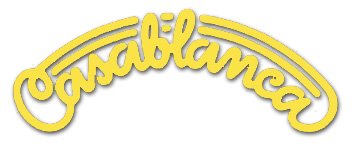
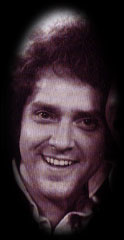 Neil
Bogart was born in Brooklyn, New York in February 3, 1941.
Neil
Bogart was born in Brooklyn, New York in February 3, 1941.
Neil was actually born Bogartz, but he changed his name to Bogart after his
childhood movie idol - Humphrey Bogart, who were the hero in the classic movie
- Casablanca!
He started out as a singer in the early 1960's and was recording under the name -
Neil Scott. He released some singles like "Bobby"/"I haven't found
it with another", "Ghost of a chance with you!/"Let me think it
over" as well as "Tomboy"/"Run to me".
According to his friend Stuart they were both also regular dancers on the Alan
Freed Big Beat TV Show and they dated a pair of twin sisters during that
period.
In the mid 60's he was working in MGM Records' promotions department when he
was brought into Cameo/Parkway Records. In 1967 Cameo/Parkway was sold and
Neil became the General Manager of Buddah Records.
In 1973 Neil formed Casablanca Records with money Warner Brothers put
up. Originally the he wanted to call the label Emerald City after the
Wizard of Oz, but since Warner owned the rights to the movie Casablanca, it was
easier to get the rights to use that name and it was also much better for
promotions.
Neil's first big signing was the rock group KISS.
But Neil's label would also become one of the most successful and influential Disco labels when signing artists like Donna Summer, Village People, Brooklyn Dreams, Cher, Love & Kisses and great P-Funk act Parliament.
Warner and Neil didn't get along very well since Neil wanted more freedom to
release records whenever he wanted and not according to a timetable which was the
major labels, like Warner's, way. Neil and Warner came to an agreement that Neil on a
monthly basis would pay back the money Warner had put into the company, which he
did.
After the split with Warner the Casablanca office were moved to Sunset Boulevard and
the whole office interior were inspired by the Casablanca movie, with Neil's office
like a complete replica of Rick's American Café from the movie.
The employees used to refer to the office as "the Casbah".
This was in the mid 70's and it was now the Disco scene really took off...
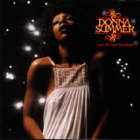 Donna
Summer, Giorgio Moroderand Pete Bellotte had been working together
for some years when Donna in 1975 came up with the idea of doing "Love to love you
baby". She had been inspired by the old Jane Birkin & Serge Gainsbourg
song "Je t'aime... moi non plus", a song that later was released as a bonus
12" with the Thank God it's Friday soundtrack. She said to Pete and Giorgio
that she wanted and could do a song like that. Giorgio produced it and made a 3
minutes single out of the song. The single didn't hit and Donna was actually quite
satisfied since she thought it was maybe a little too sexy and she had never intended
it to be a hit. But... Neil Bogart got hold of the single and he just loved it.
Donna
Summer, Giorgio Moroderand Pete Bellotte had been working together
for some years when Donna in 1975 came up with the idea of doing "Love to love you
baby". She had been inspired by the old Jane Birkin & Serge Gainsbourg
song "Je t'aime... moi non plus", a song that later was released as a bonus
12" with the Thank God it's Friday soundtrack. She said to Pete and Giorgio
that she wanted and could do a song like that. Giorgio produced it and made a 3
minutes single out of the song. The single didn't hit and Donna was actually quite
satisfied since she thought it was maybe a little too sexy and she had never intended
it to be a hit. But... Neil Bogart got hold of the single and he just loved it.
He played it at a party he held at his house and all his friends just begged him to
play it over and over again. Neil immediately called Giorgio and told him to make it
much longer to any cost - and the result is an almost 17 minutes long Disco orgy.
The team (Giorgio, Pete and Donna) was VERY productive and released almost 2
albums a year on Casablanca.
A Love trilogy was released in 1976 and later the same year they released
Four seasons of love. In the summer of 1977 I remember yesterday was
available in the stores. This was a "theme" album were each song represented a
different decade... For example the title song, "I remember yesterday", is a
20's "Charleston" type of song. But the huge hit from the album was the song that
should represent the future - it became the first real Disco hit - "I feel
love".
This was a groundbreaking tune in which they founded the famous "galloping
bassline", which today has become a kind "standard". This was a new and fresh
sound which got copied immediately with various results. The original version is
still as fresh and good as back then... And it's absolutely one of the most important
Disco songs ever and it definitely helped Casablanca Records and the Disco
scene to become as huge as it was during the late 70's and early 80's.
In around 1977 Neil Bogart also took Casablanca into the movies with Casablanca Filmworks, scoring successes with the Deep, the brilliant Midnight Express and Thank God it's Friday. Both the movies and soundtracks were doing great but Neil anyhow decided to sell the movie company off.
 1977 also meant the big break
for the recording artist Meco. The first
Star Wars movie hit the silver screen this year and everything related to the movie
was hot, specially the music in Meco's Disco version. With his Star Wars and other
Galactic Funk album he sold platinum and scored his record labels', Millennium
Records (one of Casablanca Records' sub-labels), first Number 1
hit. Through Meco's version of the Star Wars score music you could visualize the
movie much better than in the John Williams original soundtrack, and it did sell much
better than the Williams' version.
1977 also meant the big break
for the recording artist Meco. The first
Star Wars movie hit the silver screen this year and everything related to the movie
was hot, specially the music in Meco's Disco version. With his Star Wars and other
Galactic Funk album he sold platinum and scored his record labels', Millennium
Records (one of Casablanca Records' sub-labels), first Number 1
hit. Through Meco's version of the Star Wars score music you could visualize the
movie much better than in the John Williams original soundtrack, and it did sell much
better than the Williams' version.
According to Billboard Magazine, the single - "STAR WARS" by MECO
is still the biggest-selling instrumental single of the last 50 years, as
it reached platinum status in 1977 in the United States - an official 2 million
records sold according to the RIAA and another 2 million sold around the world!
Meco actually tributed his label, Millennium Records, in the song "Meco's theme/3
W. 57". 3 West 57th Street was the New York address where the label had its
office.

Rare Gems Odyssey was another signing for Casablanca in 1977 and the same year they released their first album simply entitled Rare Gems Odyssey. This album is today really a "rare gem" and is worth looking out for.
Donna Summer was the one who discovered a group called Brooklyn Dreams and helped them to get a deal with Casablanca Records. They released their self-titled album Brooklyn Dreams in 1977, the album contained the hit - "Music, Harmony and Rhythm". In 1979 they released their second album Sleepless nights. The album includes their 1978 hit "Streetman" BUT most of all it has a version of Donna's "Heaven knows". This album track has made this LP a rare collector's item for Giorgio Moroder and Donna Summer fans all over the world.
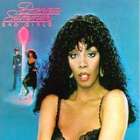 When Donna Summer released the
Bad Girls album in 1979, it became the real breakthrough for her. She topped
charts all over the world with the songs "Hot stuff" and "Bad girls".
Other notable songs from the album are "Dim all the lights", "Our love"
and "Sunset people".
When Donna Summer released the
Bad Girls album in 1979, it became the real breakthrough for her. She topped
charts all over the world with the songs "Hot stuff" and "Bad girls".
Other notable songs from the album are "Dim all the lights", "Our love"
and "Sunset people".
She was voted Number One in the US in the following categories; Top Female
vocalist/Pop album, Top Female vocalist/Pop single, Top Black Contemporary Female
crossover/Pop album, Top Black Contemporary Female crossover/Pop single, Top Female
Disco crossover/Pop album, Top Female Disco crossover/Pop single and Top Female
vocalist/Black Contemporary album.
But there were other great stuff except for Donna and KISS to come from the
label...
In my interview with Henri Belolo, he tells me about how the Village People
were "created" and why the first Village People album where signed to Neil
Bogart's Casablanca; "Because he [Neil] was already famous
with KISS and Donna Summer and he was really a music man. So he
understood immediately where we wanted to go."
I asked Henri; Where you somehow close connected to Casablanca?
Because most of your acts were actually released on Casablanca Records.
(Village People, Patrick Juvet, "later" Ritchie Family work and
Dennis Parker)
"Yes, but there is an amazing story. I am born in Casablanca. So
I was always attracted about that idea of having someone in America establishing a
record company called Casablanca. Nile Bogart already had a reputation of being a
talent scout and a music man - someone that will fast understand an
idea."
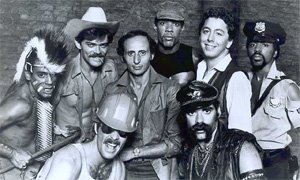 Henri continues; "We did that first album
and to write the songs of the first album we thought of all the places in America
where they had a gay life. So, Hollywood, San Francisco, Key West and Fire Island.
This is why we wrote the songs around these towns or cities or islands.
Henri continues; "We did that first album
and to write the songs of the first album we thought of all the places in America
where they had a gay life. So, Hollywood, San Francisco, Key West and Fire Island.
This is why we wrote the songs around these towns or cities or islands.
I called Neil Bogart and I told him that I had an idea. Jacques and I flew to Los
Angeles and the day before we had a meeting with him, we went to a club and we
convinced the DJ to play our acetate. He was kind enough to do it, because we already
had a reputation with the Ritchie Family. I remember he played San Francisco. It was
a big Studio, 4-5000 people and I was scared to death. Because he played the 'San
Francisco' at the peak hour around 2 AM. The first 30 seconds the floor got empty! I
said to myself 'My God, it's a failure!' And when the chorus came 'San Francisco' a
miracle - 5000 people were screaming back on the dancefloor and everyone kissing us,
congratulating us. I said 'Jacques, we got an idea there, there is something!'
So the day after at the meeting with Casablanca we pretty much stronger in our
belief. You know, we tested it in a club. But I have to say that Casablanca Records
and Neil Bogart immediately recognized a potential winner and we signed a deal in an
hour."
Which of his tunes is Henri's own favorite? Henri goes on; "Definitely "Y.M.C.A". That was really a big song. And I have to say
also it became a big song because the arranger, Horace Ott, created that
arrangement that started with the horns. That famous 'Ta-ta-ta...' And the Village
People created the choreography with the 'Y', 'M', 'C' and 'A'.
So, in life you discover that an invention is not always one man or two men. It's a
combination of people putting their love together. And I said love because you can
not create a song that out pass the years, because "Y.M.C.A" became a standard that
will stay forever."
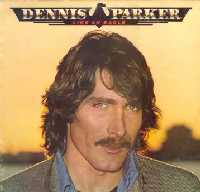 Jacques and Henri also wrote and produced 2 huge hits in 1979
for Dennis Parker - "Like an Eagle" and "New York by night",
both actually featured in the same Casablanca 12" single.
Jacques and Henri also wrote and produced 2 huge hits in 1979
for Dennis Parker - "Like an Eagle" and "New York by night",
both actually featured in the same Casablanca 12" single.
Dennis Parker was born in New York, USA in October 28, 1955, but he was also
known as Wade Nichols - the porn star actor, who Jacques and Henri turned into
a Disco star.
Unfortunately he was diagnosed with AIDS in 1984 and committed suicide in 1985.
In 1979 Neil Bogart helped the two owners of famous Studio 54, Ian
Schrager and Steve Rubell, to release a double LP called A night at
Studio 54. (Of course) the album is jam packed with classic Casablanca songs like
"Y.M.C.A" (Village People), "Take me home" (Cher),
"Last dance" (Donna Summer) and "I love America" (Patrick
Juvet).
But it also include hits like "Le Freak" (Chic), "I love the
nightlife (Disco round)" (Alicia Bridges), "Let's all chant"
(Michael Zager Band), "Instant Replay" (Dan Hartman) and
"(Push, push) In the bush" (Musique).
Neil Bogart was even once in negotiations with Steve Rubell and Ian Schrager about
buying Studio 54, but that never happened.
 Legendary mixer Tom
Moulton also owned his own Disco label called Tom n'Jerry Records. It was
originally distributed through SalSoul Records, but he later moved the company
to Casablanca and artists included People's Choice among others.
Legendary mixer Tom
Moulton also owned his own Disco label called Tom n'Jerry Records. It was
originally distributed through SalSoul Records, but he later moved the company
to Casablanca and artists included People's Choice among others.
And yes... There was a Jerry as well, Jerry Moulton - Tom's younger brother,
who was the labels promotions man.
In 1979 Tom released an own 12" single as T.J.M on the Casablanca label. The
song was called "I don't need no music"
When I interviewed Tom I asked him; Have you done any others 12"s
by your own name, or is that the only one?
"That was part of my deal with Casablanca, that I had to come
out with something with my name on it. And I love that "I don't need no music" and
what was the other side... Oh, I loved that one too. That was..."
"Put yourself in my place".
"Yeah!"
Yes, both sides are really good on that 12". Was that the only one
you released?
"Yes!"
Is it you singing? Or is it someone else singing?
"Oh No, no, no, no, no - It's not me. Actually it's... the guy
who's singing that is, his name is Ron Tyson - who is the guy in the
Temptations."
My good friend D.L.Chandell has updated me with the following information on
Casablanca's sub-labels.
The sub-labels included;
* CHOCOLATE CITY, which was founded by former fellow Buddah Records
co-worker Cecil Holmes in 1975, and whose artists included Cameo,
Brenda & The Tabulations and Randy Brown.
* PARACHUTE, which were just down the block from Casablanca and founded by
Russ Regan in 1976/1977. Artists included Liquid Gold, Morris
Jefferson and David Castle.
* MILLENNIUM was founded by Jimmy Ienner Sr. in 1976 approximately;
changed distribution from Casablanca to RCA in 1979 before the PolyGram sale; most
famous artist: Meco.
* OASIS was a sub-label started by Casablanca in 1975 and ended just shortly
before 1977; Artists included Donna Summer, fellow producer Giorgio
Moroder and Roberta Kelly - who all moved to Casablanca straight.
There were also short-lived imprints like EARMARC (founded by Marc Paul
Simon) and AMERICAN INTERNATIONAL RECORDS (owned by the motion picture
company of the same name).
Neil Bogart sold Casablanca to Polygram in 1980 and in May 8,
1982 Neil Bogart died of cancer.
In around 1983, PolyGram folded the 20th Century Fox record catalog and
artist contracts into the Casablanca label name, especially since 20th Century Fox
Records shut down.
 When the music channel - VH1 - broadcasted their 100 Greatest Dance
Songs of the 20th Century, in October 2000, several Casablanca classics were on
the list...
When the music channel - VH1 - broadcasted their 100 Greatest Dance
Songs of the 20th Century, in October 2000, several Casablanca classics were on
the list...
At # 6 we find Donna Summer's "Last dance", "Y.M.C.A" held the
number 7 spot followed by Donna's "Love to love you baby" at #
63, # 64 "Funkytown" by Lipps Inc, # 67
"Flashdance... What a feeling" by Irene Cara, # 76 Donna Summer
and "I feel love", # 89 Donna again with "MacArthur Park" and at
# 94 Parliament's - "Flashlight".
Source: A Tribute to
Casablanca Records
Great reading of the true stories is:
Hit Men : Power Brokers and Fast Money Inside the Music Business by Fredric
Dannen
Disclaimer


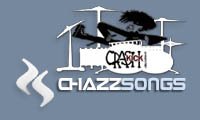

0 Comments:
Post a Comment